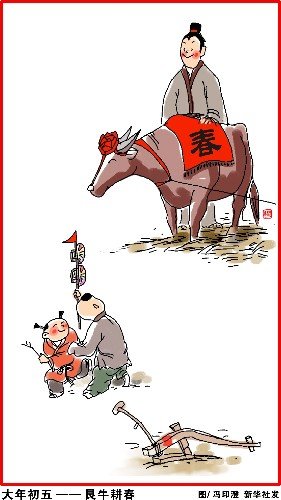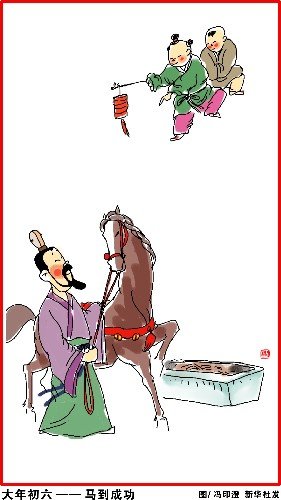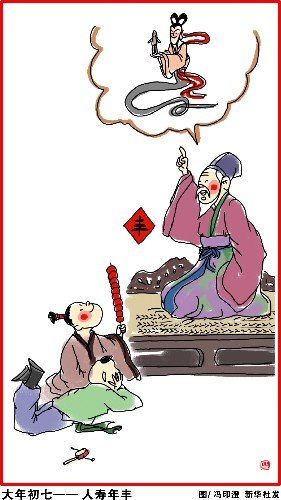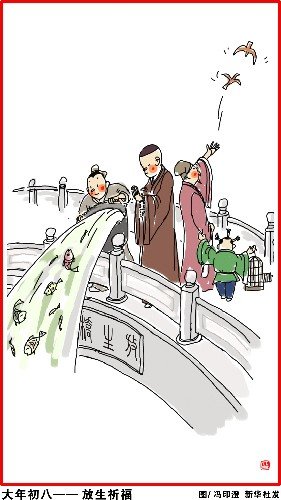
The old saying "three rams bring bliss" is connected with the fourth day, which says that by making a good beginning a happy end comes.
According to folklore, it is also the day to welcome back the Kitchen God. On this day, the Kitchen God would check the household and therefore people should not leave home.

The fifth day is also called the "day of cow". According to Chinese folklore, the first seven days of the 1st lunar month are respectively called "day of chicken", "day of dog", "day of pig", "day of sheep", "day of cow", "day of horse" and "day of man". When creating all living beings on earth, Nu Wa, a goddess in Chinese mythology, created the six creatures before human beings.
The fifth day is also the God of Fortune's birthday and people will celebrate this day with a large banquet. This day is also commonly known as the Festival of Po Wu, literally breaking five. According to custom, it is believed that many New Year taboos can be broken on this day.

On the sixth day, people make wishes for "ma dao cheng gong", win success immediately upon arrival.
According to tradition, families usually send away the Ghost of Poverty on this day. To send away him, Chinese people will usually throw away their ragged clothes, rubbish and other dirty things.
By doing this Chinese people wish to send away poverty and welcome the beautiful days and good luck in the New Year.

The seventh day is commonly referred as the "day of man", and in most parts of China people will eat noodles as they symbolize longevity in Chinese culture.

The eighth day is believed to be the birthday of millet, an important crop in ancient China.
According to folk proverbs, if this day is bright and clear the year will be a harvest year; however, if this day is cloudy or evenrainy, the year will suffer from poor harvest.
Meanwhile, people also set free captive animals on this day, with a blessing for all living beings to flourish in the New Year.


















































